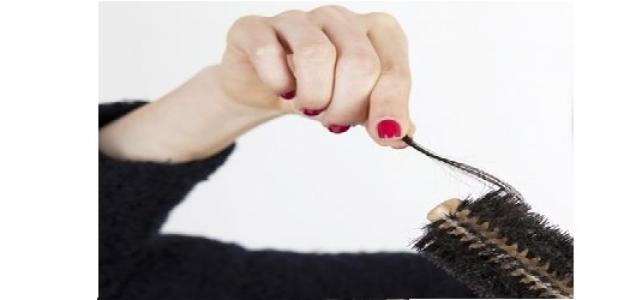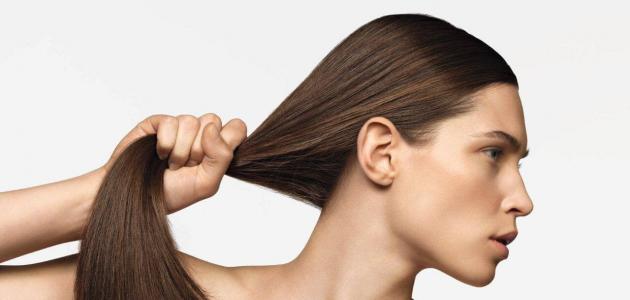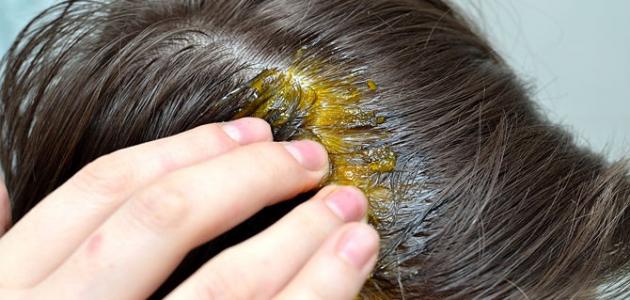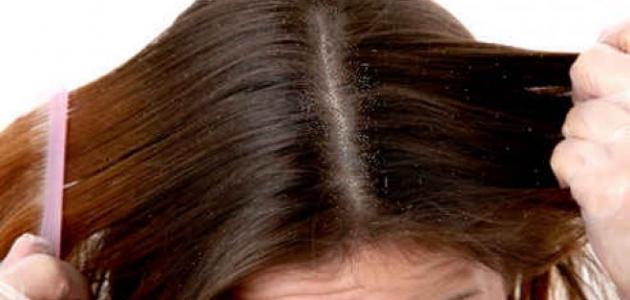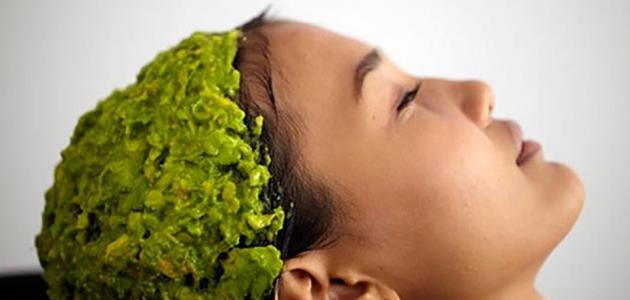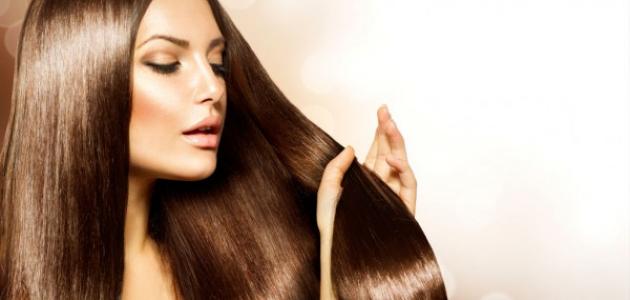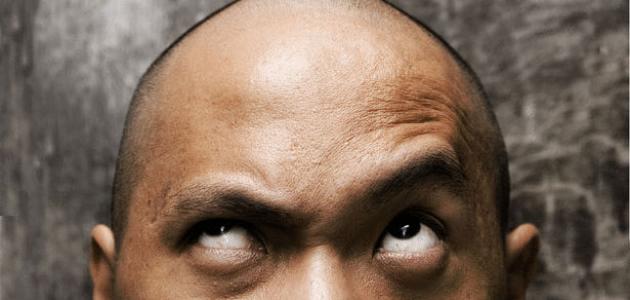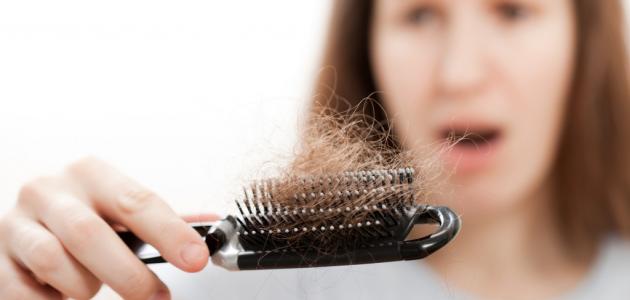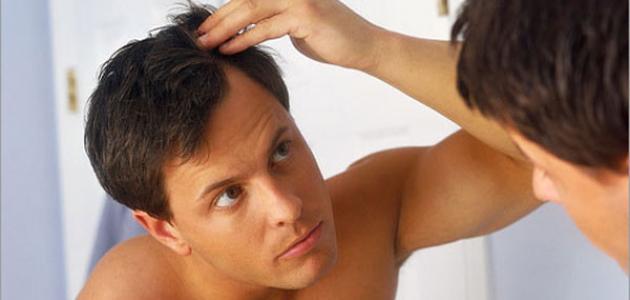hair loss
People are exposed to hair loss. Hair falls out naturally during showering, when washing hair, and also when cleaning and styling it. Hair falls out at a rate of 50-100 hairs per day, and old hair is replaced by new hair. However, if hair loss increases significantly, in this case It is considered a problem that must be addressed in women and men, and to know the causes of hair loss. Hair loss can be due to a hereditary factor, and hair can fall out when stressed, and also when using hair products that contain chemicals, following a poor diet, and exposing the hair to bad climatic conditions. Hair loss can be caused by a health problem.
Health and medical reasons for hair loss
There are many health and medical reasons that lead to hair loss, including:
- genetic factor: The genetic factor leads to gradual loss and loss of hair with age, and within certain predictable patterns. The genetic factor is considered one of the most common causes of hair loss, or what is known as baldness.
- Hormonal changes: Hormonal changes lead to permanent or temporary hair loss and loss, due to several reasons such as pregnancy, childbirth, going through menopause, and some problems with the thyroid gland.
- Medications and nutritional supplements: Hair loss can be a side effect of certain medications, such as those used to treat cancer, arthritis, depression, heart problems, gout, and high blood pressure.
- Excessive stress: Excessive stress as a result of the body being exposed to physical or emotional trauma for a certain period can cause hair loss and make it thin, but it is considered a temporary cause of hair loss, which can be treated.
- Iron deficiency anemia: People who suffer from anemia as a result of iron deficiency usually have thin and brittle hair. One of the most prominent symptoms of anemia and iron deficiency is hair loss, which is the result of low iron in the body. In the case of anemia, the blood lacks red blood cells that transport oxygen to the cells in the body. The body, including hair follicles. When a large amount of oxygen is lost, the hair is exposed to loss and becomes deprived of the basic nutrients needed for its growth. There are symptoms of iron deficiency in the body such as extreme fatigue, foot pain, cold hands, and weakness. When it is confirmed that there is an iron deficiency in the body, We must eat beneficial foods rich in iron, and we should also take iron supplements after consulting a doctor.
- Hypothyroidism: One of the causes of hair loss is hypothyroidism, or what is known as underactive thyroid gland. The thyroid gland is responsible for secreting thyroid hormones necessary for the growth and development of the body and hair. When the thyroid gland is inactive, it does not produce enough hormones, this affects hair growth and scalp tissue. Head, eyebrows, and body hair as well. When thyroid hormone is correctly diagnosed and treated, hormonal levels are restored to normal, thus preventing hair loss, and strong hair is obtained.
- Scalp infection: When the scalp is unhealthy, it causes inflammation of the hair follicles, which leads to difficulty in hair growth, and thus scalp infections cause hair loss. There are types of scalp infections that are more common, which is tinea capitis, which is one of the types of fungal infections, as Fungi can live on dead hair tissue and spread quickly, and therefore they affect parts of the scalp, or the entire scalp. The affected areas often appear as small black dots, and they can infect children at puberty, and they can occur at any age, and this problem is solved. Diagnosis and appropriate treatment.
Symptoms of hair loss
Hair loss can appear in several different forms, depending on its cause. It can occur suddenly, or gradually, affecting the scalp only, or the entire body. There are many symptoms associated with hair loss, including:
Read also:Causes of sudden hair loss- Thin hair in the forehead: It is the most common symptom among men and women because it is linked to a genetic condition, as the hair begins to recede from the forehead in the form of a line resembling the letter (M) for men, while in women some expansions and spacing appear between the hair strands, without changing the shape of the hair in the front of the head.
- Circular bald spots: This type of hair loss affects only the scalp, as it appears in the form of circular spaces the size of a coin on the head, beard, or eyebrows.
- Sudden hair loss: Exposure of the body to physical or emotional trauma can cause sudden and abundant hair loss from the head, leading to thinning of the hair in general.
- Sudden hair loss: Exposing the body to a certain type of treatment, such as chemotherapy or medications, can lead to complete loss of hair on the body, not just the head.
Natural ways to treat hair loss
There are several natural ways to treat hair loss, including:
- Follow proper nutrition: You must be careful about nutrition by eating food that contains minerals and nutrients such as protein, which is important for strengthening hair and increasing its growth. It is recommended to eat protein daily, approximately 2-3 servings of three ounces of meat, or a mixture of 4-5 servings of meat. Beans, dairy products, and people who suffer from hair loss should include eggs, fish, and nuts in their diets. This is because it contains omega-3 fatty acids; To get a healthy scalp and reduce inflammation.
- Nutrient intake: Nutrients such as iron, zinc, and biotin are beneficial for hair. Iron deficiency can cause anemia and lead to hair loss, and it is not recommended to take iron supplements unless anemia resulting from iron deficiency is confirmed. As for zinc and biotin, they are supplements that help hair growth. People who suffer from nutritional disorders that they lack have thin, brittle hair, and a doctor should be consulted before taking nutritional supplements.
- Stress control: Hair loss and hair loss can increase due to fatigue, physical and emotional stress, and there are cases in which hair loss is normal for women, such as during menopause and after pregnancy. Hair loss is considered an emotional matter for most people, and getting rid of stress and tension reduces hair loss.
Tips to prevent hair loss and loss
Hair loss results from factors that are sometimes difficult to control. However, hair can be preserved and hair loss can be prevented by following some tips, including:
Read also:Anemia causes hair loss- Stay away from materials that damage hair: The use of hair dryers must be minimized, as heat weakens hair proteins, and using heating methods such as hair curlers, hair irons, and constantly drying the hair leads to hair weakening and loss. The best way to dry hair is natural drying, and avoiding the use of dyes and chemicals. Repeated use of chemicals to color hair increases hair damage and leads to hair loss, so do not color hair every four to six weeks at most.
- Use a good, suitable hairbrush: You should use a soft brush made of natural fibers, starting from the underside of the hair, avoid using a brush when the hair is wet, and use a comb instead of a brush.
- Scalp massage with nourishing oil: Massaging the hair with oil such as coconut, rosemary, or almond oil increases blood flow to the surface of the skin on the head and the hair follicles by massaging the scalp with oil, which warms the skin and enhances blood circulation so that the cells receive many nutrients that increase hair growth.
- Follow a healthy and balanced diet: You must eat a healthy, balanced diet that contains iron, protein, vitamin C, and omega-3 fatty acids. To prevent hair loss, obtain a healthy scalp, and by following a healthy diet, the body becomes healthy, and thus healthy hair is obtained, and hair loss is reduced by following a healthy diet full of vegetables, fruits, vitamins, and minerals that are useful in promoting healthy hair and preventing hair loss.
